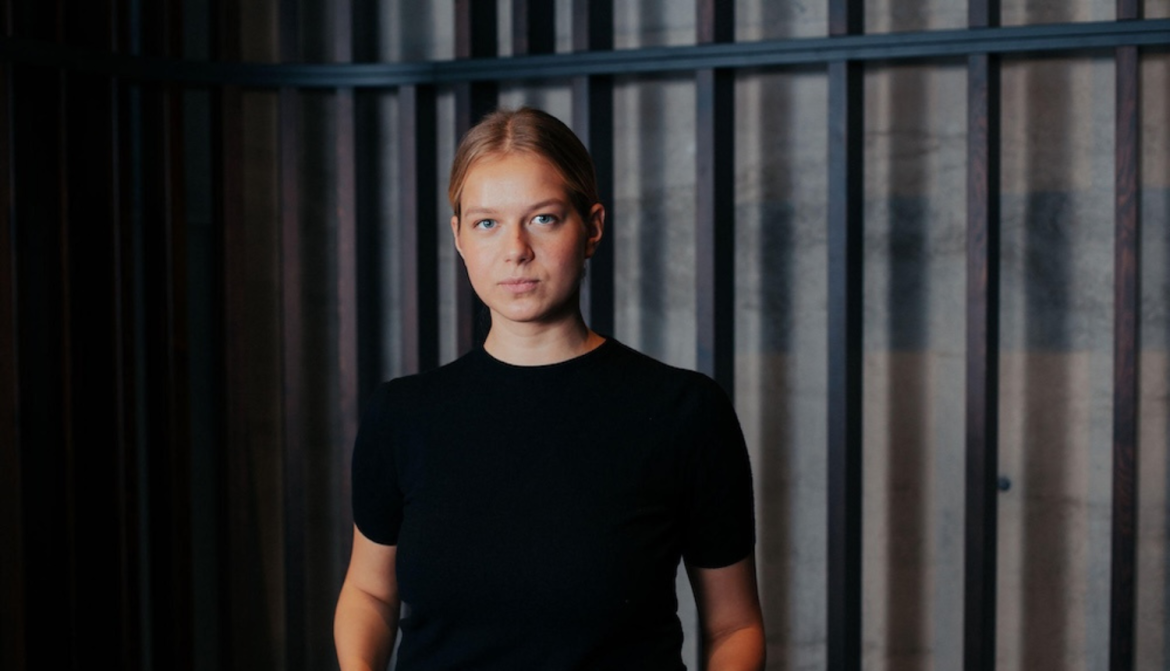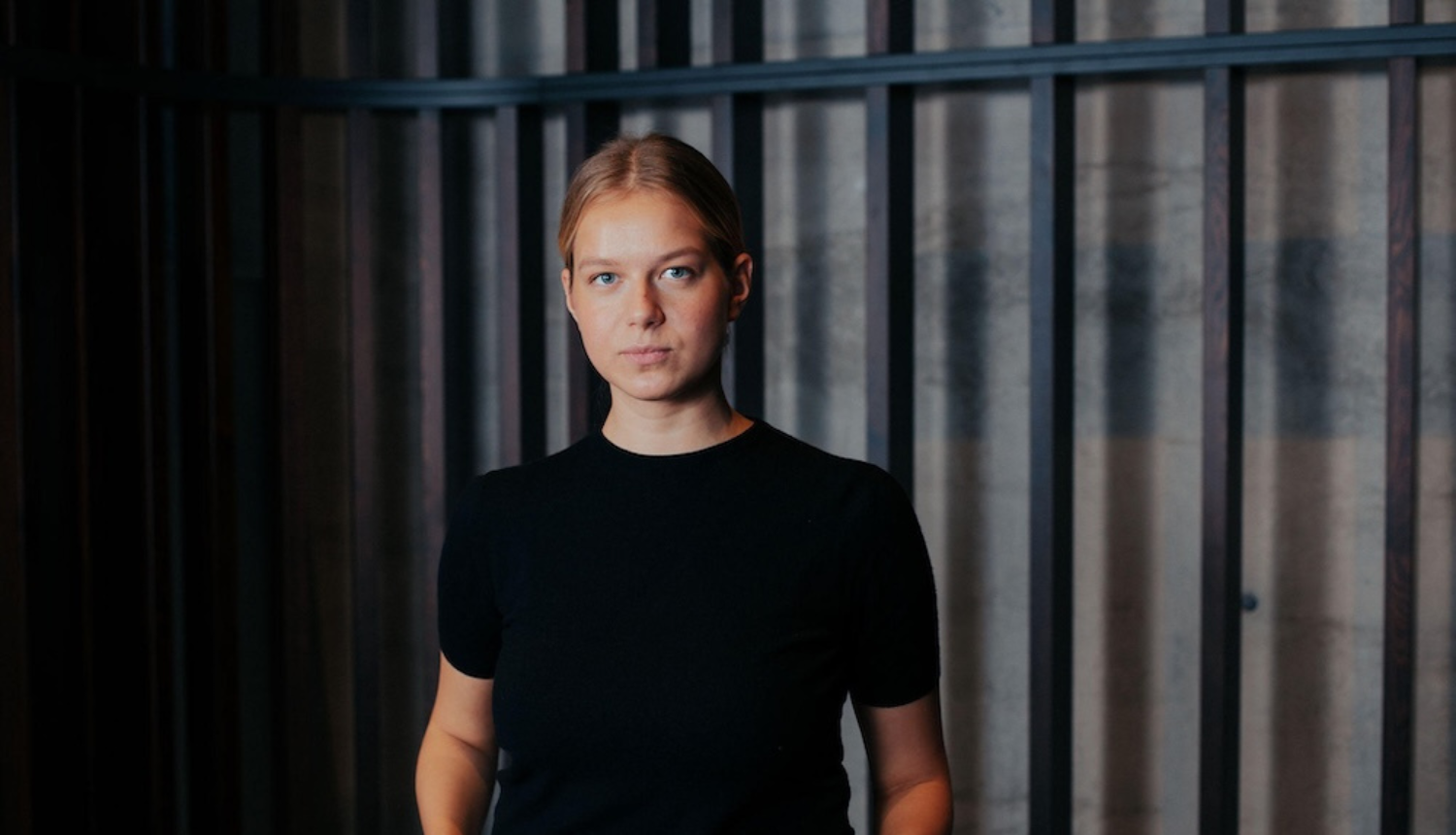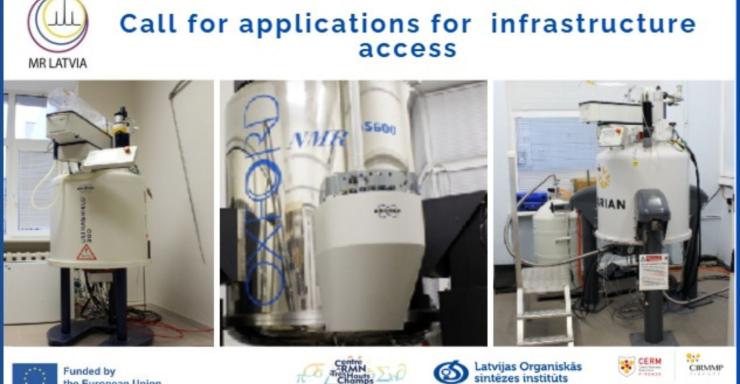There has long been discussion about how typical investment funds prefer to invest in software startups rather than science-intensive companies. However, Anna Vildaus, COO of the London-based investment firm Wilbe, believes that successful and truly ambitious science-based startups are the key to our future prosperity - they will determine how well we live. That's precisely why these sectors are becoming more attractive to investors.

Vildaus believes that science can thrive under capitalism, though, of course, this requires several key preconditions. In an interview with Labs of Latvia, she shares more about whether Latvian scientists can attract Wilbe's interest and why investing in science is so important.
Previously, you worked at the health-tech startup Vigo Health, but you've now been away from Latvia for a while. What are you doing now?
I've been working at Wilbe, a London-based investment firm, for almost a year now. Interestingly, I met the fund's co-founder, Devika Thapar, at the TechChill conference in 2020, where she was one of my podcast guests. Back then, Wilbe wasn't even an investment firm yet. In collaboration with top UK universities, they were offering an educational program for scientists to make business and commercialisation knowledge more accessible.
Scientists are the best candidates to found and lead companies based on their research. However, if they lack business understanding from the start, the business is often built on the wrong foundation, which can negatively impact its long-term growth potential.
That's why the founders of Wilbe began teaching such courses to PhD and postdoc researchers - because it's precisely at that stage when scientists start thinking about entrepreneurship, but lack the basic knowledge to do so.
In the startup world, everyone talks about mobile apps and how AI speeds things up - but science doesn't work that way. Sure, AI and automation can accelerate processes, but science-based businesses require significantly more time and money. That's why it's crucial to educate both scientists and investors to avoid naïve business assumptions.
I was drawn to Wilbe's mission to promote access to knowledge and their human approach, helping scientists become successful entrepreneurs. Our podcast conversation was so great that we kept in touch. Last year, when I left Vigo Health, I went to London and met Devika for coffee. We realised we were both in the right place to begin discussing collaboration.
And what happened next?
We had coffee in April, and by July, I was already working as Wilbe's COO. The team is small, and I help manage all daily operations of the fund. Everything happened very fast.
The UK has an outstanding scientific and research environment, but it lacks professionals experienced in commercialisation and operational management of such solutions. I see enormous potential here and work passionately with local scientists, founders, and investors.
What exactly do you do? What does it mean to be COO of an investment fund?
I handle everything necessary to ensure the fund operates efficiently. This includes working with our academic and industry partners to reach scientists. In the UK, I work closely with Oxford and Cambridge, and in the US, with MIT and other industry leaders.
I also work with our portfolio companies through the investment process and support them afterwards with fundraising, commercialisation strategy, and team expansion.
I've managed similar processes before as co-founder and COO of Vigo Health, working on digital technologies in healthcare. This gives me insight into the challenges startup founders face - so now, as an investor, I can support 20 companies at different development stages.
The dynamics here are similar to startups - you often have to jump in and help founders in situations you've never dealt with before. I've always been drawn to science- or deep tech–based fields with high intellectual value. Commercialising them is harder, but the societal benefit is far greater.
How big is your fund's portfolio?
So far, we've invested in 20 startups, and we've met most of the founders through our educational program. About half of our investments have been in US companies, the rest in the UK and Europe.
Our most successful investment so far is Proxima Fusion, which recently announced a €130 million Series A round. It's a Munich-based company working on an alternative to nuclear energy. We met their team through the Wilbe program before the company was even formed. Like all our portfolio companies, they have huge ambitions—so big, they sound like science fiction.
And that's a good thing - if we talk to a team and think "they're completely crazy," that's usually a perfect sign.
Since not everyone on our team is a scientist, we can't fully evaluate the research itself. That's the problem many investors face - they focus too much on assessing the science, but at this stage, that's impossible. Instead, you have to believe in the team. No one can say whether the idea will succeed in five years. That's why we invest in the scientists, not just the science.
How much do you typically invest per startup?
On average, around $250,000. We're usually the first investor, pre-pre-seed, to help the team get to the pre-seed stage.
How long do you stay involved?
Usually, we remain actively engaged until the seed investment round is raised, sometimes even longer. We might have weekly calls early on, helping with hiring, lab space, and business strategy. We're like an operational partner in the company.
Who are the investors behind your fund?
Mostly family offices from the US and Europe, and repeat founders.
You mentioned that Wilbe invests in scientists, not their science. That sounds unusual.
Many investors now want to work with science-intensive startups. But when Wilbe started, our collaboration with universities was unique. No one was offering business programs specifically for scientists. That gave us a unique opportunity to meet these scientists at the right moment - before they even formed companies.
We usually meet our portfolio companies before they've officially formed. We know the people, we understand why they care about the idea. We're also deeply involved in the spinout process and help with negotiations when separating from the university.
One key to future success is how well the spinout process is handled. It's often complicated, especially when the scientist's IP was created during university work or funded projects.
Unfortunately, even universities lack business understanding and often demand up to 50% ownership in spinouts.
Currently, UK universities expect around 25%. Anyone familiar with startups knows that's a deal-breaker - it ruins the company's prospects right from the start and deters future investment.
Given the number of funding rounds a company needs, no investor will join in. Universities must understand that 5% of a successful company is better than 50% of a nonexistent one.
What's best practice for university equity in science-based startups?
There's no one-size-fits-all, but none of our portfolio companies have universities holding more than 10%. On average, universities hold around 2.5% of our companies. That's largely thanks to our co-founder Alessandro Maiano, who leads these negotiations.
Fair university spinouts have always been a core part of our mission. Universities don't need more equity - they need a better understanding of how long commercialisation takes and how much capital it requires. Scientists also lack this knowledge; it's unfair to expect them to have it without prior experience.
You said that science-based startups are becoming the new normal. Are investors becoming more open to funding them?
It's no longer novel, but it still requires much education. Partners must understand that it may be riskier than funding apps, which have users and revenue. We don't have that kind of proof.
Investors have to believe in the mission - that these scientific breakthroughs, if successful, will change how we all live. These technologies will impact healthcare, energy, and many other sectors. You have to believe in the bigger picture.
AI has created amazing tools, but science is what will improve our health, safety, independence, and well-being. Our future depends on science.
And it's our role to prove that capitalism is the key to accelerating the transfer of science from the lab into real life.
What does science need to thrive under capitalism?
There must be market demand for the innovation - this is the key. Even before venture capital, scientists could work on potentially commercial solutions through Advance Market Commitment (AMC) contracts, often funded by public institutions or philanthropic organisations like the Gates Foundation.
An AMC guarantees a market for the innovation, which proves potential future profit and market size for VCs. This creates a public-private funding symbiosis, enabling the commercialisation of science for rare diseases, vaccines, and more.
What makes science commercially viable? And which inventions are fine staying academic?
Fundamental research is essential and will always need public funding - it's not something private capital will immediately invest in.
Academia gets ideas to the point where they can plug into venture capital and market-driven models. That takes investors, infrastructure, and capable teams.
AI and modern tech give scientists unprecedented opportunities to become entrepreneurs and bring their research to market with real users. The barriers are lower than ever.
Should scientists become entrepreneurs?
When scientists shift from academia to business, their mindset changes. Academia is hierarchical and slow-moving. In business, there's no safety net.
I admire those who've made this leap. Often, they realise - despite successful academic careers - that they don't want to keep doing what their grant is for. It's frustrating to see their science stuck in the lab. The real magic happens when they step outside.
What kind of founders do you fund?
Extremely ambitious ones. Aside from Proxima Fusion, we also fund a company engineering gut bacteria to sense glucose and deliver insulin through the liver, eliminating the need for injections.
We choose teams aiming for massive impact on health, climate, energy, defence, and more.
When do you say "no"?
We only invest in scientist- or engineer-led teams we've met through our Wilbe platform.
We assess ambition. Some of our companies aim to eradicate diseases like diabetes, not just treat them. They won't sell out to Big Pharma until they realise their mission. That's the kind of "crazy" ambition we love.
We're usually the first investor, not involved later on. And we don't invest when the science is too early to show commercial potential or clear customers. That's why we invest in scientists who've completed our program and demonstrated a strong desire to lead a business.
How competitive is your funding?
Most of our 20 funded teams came from our BSF program, which has had over 300 graduates globally. Historically, around 10 applicants competed for each spot.
To promote knowledge access, we've digitised the program, now available to all scientists for free. We assess scientists' responses and projects through the platform and identify investment potential.
We've met thousands of scientists, and we've gotten good at spotting the "crazy ambitious" ones worth backing. You won't find them through cold emails.
What opportunities do Latvian scientists have to receive your funding?
We have no geographic restrictions. There's no reason we couldn't work with Latvian founders. London has its advantages, but it's expensive. The Baltics could be a great place to build early-stage companies.
We don't require companies to be based in London or anywhere specific. Two of our portfolio companies have Estonian founders.
What's your view on Latvian science from your current perspective in London?
I want to understand the Latvian landscape better, but I haven't deeply explored the local scientific capacity yet.
Knowing the funding limitations in Latvia, I'd be surprised if the level was high enough to meet our fund's expectations. That's reflected in low international university rankings.
Even promising projects in the Baltics might struggle to build scientific teams solely from local talent. If they could attract international talent - now that's more interesting.
It should never be about "the best available locally." That's not how it works. Bigger ambitions are needed - science and intellectual capacity are everything.
Many of our companies have recruited from NASA, SpaceX, Apple, etc. There's no reason a Latvian company couldn't do the same. It all depends on the mission and ambition.
I stay connected with Latvia, not just as a fund representative but personally. I want to build relationships with universities and institutions working on science commercialisation and support healthier university spinouts.
It's also interesting what's happening in the US right now. Following announcements of massive funding cuts for science, many scientists are considering moving to Europe. This is a huge opportunity.
Latvia may not compete with US salaries or grants, but there's never been a better time to try.
We could attract at least a few brilliant lab leaders - and that alone would be enough. Lab leaders shape the future - they identify and train excellence and choose which experiments to conduct. Strong lab leaders often come with commercialisation experience and serve as startup co-founders or advisors.
Latvia isn't where it could be in science, but with timely and smart action, that could change.


